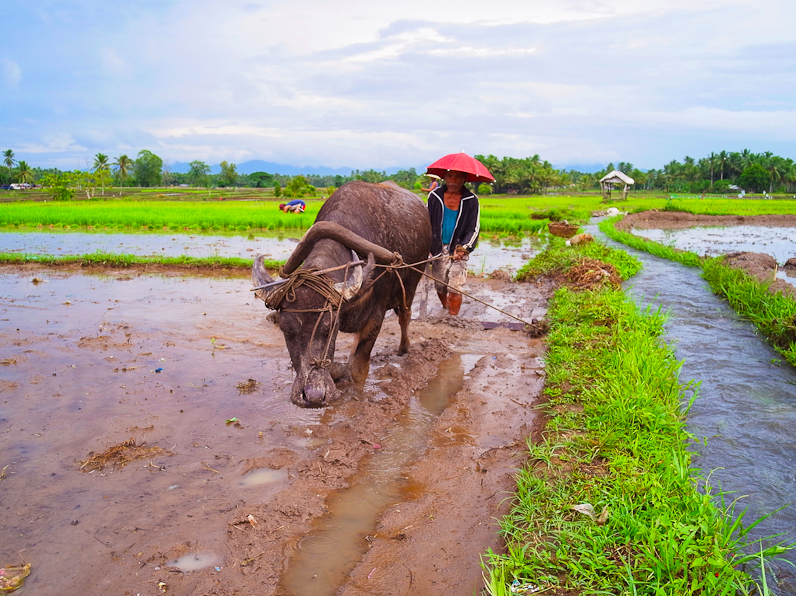Research group IBON said that to truly resolve high rice prices and production concerns, the government should develop domestic rice production and ensure strict monitoring and regulation. With Pres. Duterte poised to sign the Rice Tariffication Bill into law, the group said that the measure is not the solution and only covers up government’s long-time inefficiencies and neglect of the local rice sector as well as the country’s agriculture.
Approved by the bicameral committee last December, the Rice Tariffication Bill now awaits the president’s final signature. Government assures that the lifting of importation restrictions on rice will moderate rice prices and curb the high inflation that plagued consumers, especially the poor, last year.
IBON said however that government’s general neglect of the agriculture sector is mainly to blame for domestic rice troubles. In the past two decades, government has allotted no more than 5% of the national budget to agriculture. This miniscule allocation is even worsening under the Duterte administration with the Department of Agriculture proposing to receive only Php49.8 billion or 1.3% of the 2019 national budget as submitted to Congress in July 2018.
Government’s focus on increasing rice imports without bolstering domestic agriculture and its producers could leave the country reliant on rice imports, said the group. IBON said this would increase the country’s vulnerability to higher world market prices and volatile rice production of other countries. The group recalled that in 2008, Vietnam, India and Pakistan restricted their rice exports due to rising global rice prices.
IBON said that further opening the country to rice imports amid a weakening local agriculture could also worsen the already poor situation of Filipino rice producers. For instance, research by the national peasant federation, Kilusang Magbubukid ng Pilipinas (KMP), shows that should the country import two million metric tons of palay, about 500,000 out of 2.4 million rice farmers will be severely affected.
There are steps the government can take to genuinely resolve the country’s rice prices and production woes, the group said. For example, it could ensure the public’s access to cheap local rice by actively monitoring production and supply and regulating prices.
IBON said that the National Food Authority (NFA) could reverse its previous failure to fulfill its mandate of buying palay from the local farmers at competitive farmgate prices, selling cheap local rice to the domestic market, and ensuring enough supply for the country’s food security. The government can improve its performance in this regard simply by increasing the budget for NFA’s procurement and marketing, but the overall agricultural budget is declining, said the group. The Rice Tariffication Bill is also set to reduce NFA’s functions.
The administration can also learn from other rice-producing countries that subsidize rice production and consumption and ensure affordability, the group said. Countries that enjoy government support to the rice sector include Vietnam (US$400 million), Thailand (US$2.2-4.4 billion), and the United States (US $619 million), among others. The Php10 billion (US$190 million at current exchange rates) proposed rice development fund under the Rice Tariffication Bill is minimal and long-delayed in comparison, and remains to be seen if indeed it would be allocated as subsidy to farmers. The Philippine government’s infrastructure program should also prioritize much-needed infrastructure for the agriculture sector, such as irrigation and storage facilities and farm-to-market roads.
IBON said that instead of pursuing neoliberal measures, government should take up steps that will protect consumers, the local rice sector, and its farmers. This should be in accordance with long-term efforts to develop the domestic agriculture and industries. ###




